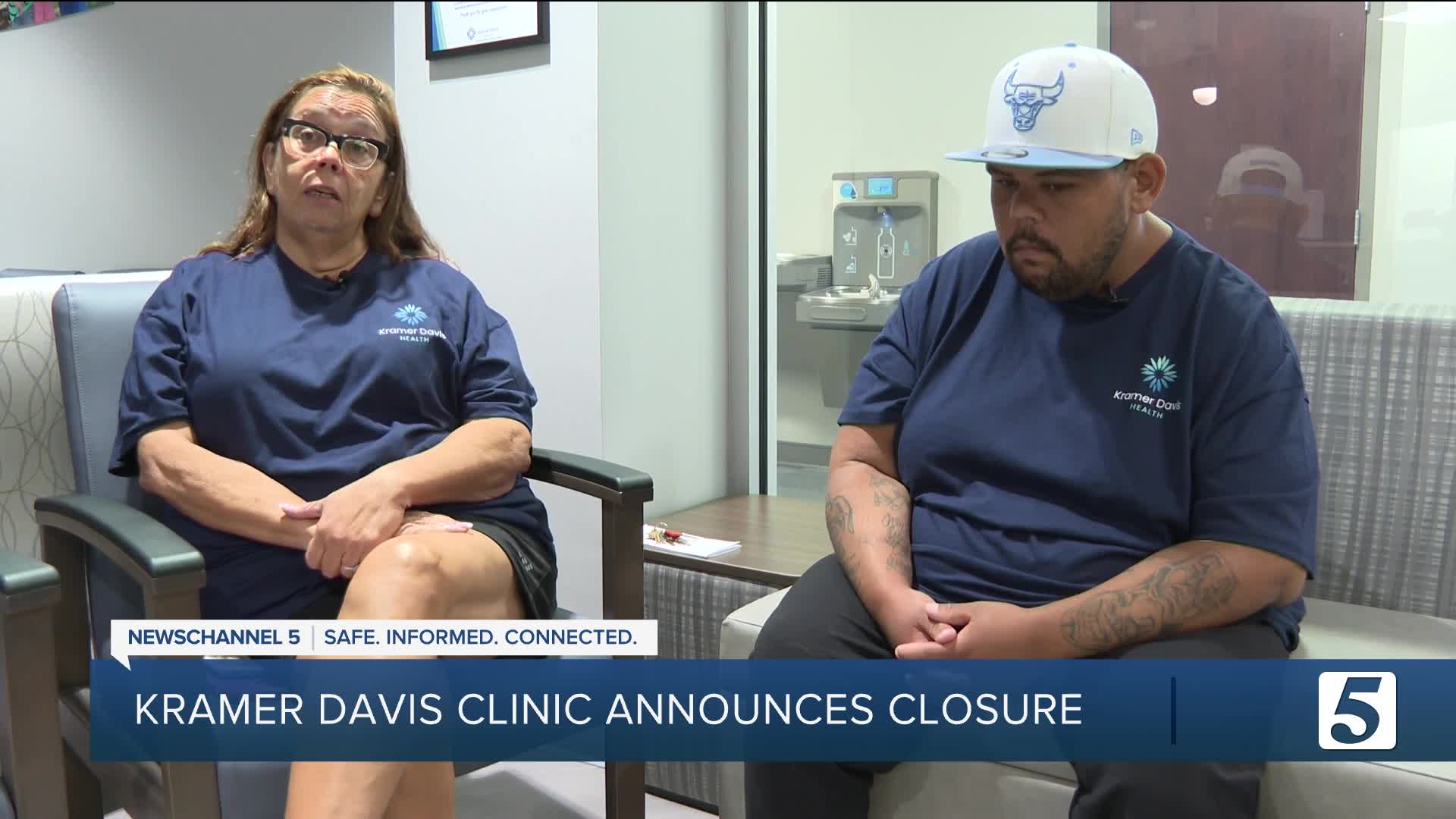HERMITAGE, Tenn. (WTVF) — A specialized medical clinic that serves patients with intellectual and developmental disabilities will close this month after losing its private funding, leaving more than 650 patients without access to tailored healthcare services.
Kramer Davis Clinic in Hermitage announced it will shut its doors at the end of September, but will be open for current patients through September 26, 2025.
According to clinic leaders, the facility serves as a critical healthcare resource for patients who often struggle to receive proper medical care in traditional settings.
"This is our last Hail Mary. We're in shutdown mode now," said Meera Gandhi, clinic director for Kramer Davis.
The clinic may look like a typical doctor's office, but it's designed specifically for patients with disabilities.
Features include a wheelchair lift, specialized sensory rooms that allow patients to decompress during visits, and more.
The actual facility and the care they offer are specifically designed for folks with intellectual and developmental disabilities.
Gandhi said the clinic provides medical, behavioral, and dental care, and other services — many of their patients go years without proper care due to their disabilities.
"This is the first time they've gotten blood drawn. This is the first time they've been able to successfully see a dentist," Gandhi said.
Some patients travel hours for the care they receive at Kramer Davis.
Gandhi said they’re the only facility in the state that offers this level of service, and they’ve got patients coming in from 52 counties.
Kaleb Starner, who is on the autism spectrum, traveled more than two hours from Dover on Tuesday for physical therapy.
"Most doctors' offices don't have stuff like this place or the people that have the time or the training to work with people with intellectual and developmental disabilities," Starner said.
Brandon Cashman is a current patient at Kramer Davis as well.
I met him and his aunt Sabreana, who shared how traditional healthcare settings failed him in the past.
“He was on lithium, and they failed to track his levels. And at 14 years old, he went into renal failure. And now at 29, he’s in stage 5 and needs a kidney,” said Sabreana Cashman.
While the clinic's funding was private, Gandhi and other clinic leaders are hoping the state of Tennessee may be able to step in and help with costs.
According to Gandhi, most of their patients are on TennCare, and the clinic actually saves money for Tennessee’s Medicaid system in the long run by reducing the amount of hospital visits, reducing ER visits, reducing hospital admissions, and a variety of other ways.
Clinic leaders said if the clinic just had a little more time and money, they’d be able to build up their patient base to make up for the private funding that went away.
This story was reported on-air by journalist Robb Coles and has been converted to this platform with the assistance of AI. Coles verifies all reporting on all platforms for fairness and accuracy.
Do you have more information about this story? You can email me at robb.coles@newschannel5.com.

The news surrounding student loan repayment has been ever-changing over the last few years. When it comes to your money, confusion is never a good thing. Thankfully, Robb Coles helps us sort out the path forward. Check out his story for some practical tips and insight behind the latest changes.
- Carrie Sharp





